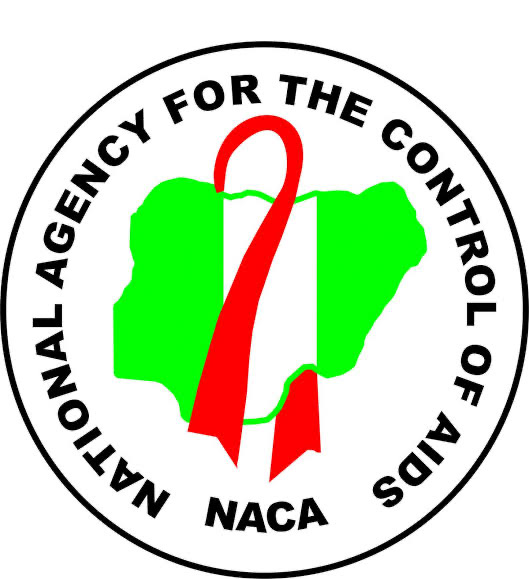Strengthening gender desks in schools: The Kaduna example
By Aisha Gambo, News Agency of Nigeria (NAN)
Across many schools in Kaduna state, a silent transformation is unfolding to tackle School-Related Gender-Based Violence (SRGBV) and create a safer environment for students, especially girls.
For students like Hauwa’u Yusuf, a Senior Secondary 1 student at Government Secondary School, Rigasa, daily school life once came with anxiety and fear.
She was bullied by some of her male classmates who taunted her, mocked her, and threatened physical assault.
At the time, Hauwa’u and her peers, unsure of whom to confide in, chose silence.
Such experiences are not isolated.
Bullying, a major form of SRGBV, includes behaviours like name-calling, peer exclusion, verbal harassment, physical violence, and even cyberbullying.
According to UNESCO, nearly 130 million students between the ages of 13 and 15 globally have experienced bullying.
In Nigeria, these figures are reflected by the UN Girls’ Education Initiative (UNGEI), which reports that 50 per cent of girls and 52 per cent of boys under 18 have encountered physical violence.
Additionally, 25 per cent of girls and 11 per cent of boys have suffered sexual violence, much of which occurs in school environments.
More specifically, 44 per cent of Nigerian girls and 35 per cent of boys have reported enduring physical or sexual violence from either teachers or fellow students.
The widespread prevalence of such violence threatens not only the safety of students but also their academic performance and emotional well-being.
In response to these alarming statistics, the Kaduna State Government has initiated targeted interventions through the establishment of Gender-Based Violence (GBV) focal persons, also known as Grievance Response Mechanism (GRM) Officers, in schools across the state.
This initiative aims to provide safe, confidential, and accessible avenues for students to report incidents of abuse and receive appropriate support.
Yusuf’s school was one of the beneficiaries of this intervention.
With the deployment of a GBV focal person, the school created a space where students like Hauwa’u could safely report harassment.
“The bullying has reduced,” she said, while suggesting that further measures, like deploying more security personnel, could enhance the initiative’s effectiveness.
The GBV/GRM officer at the school, Salamatu Sadik, explained her role succinctly.
“I sensitise students about GBV and listen to complaints confidentially. I also ensure that offenders are reprimanded or reported to higher authorities when necessary”.
She stressed the importance of continuous training for GBV officers and recommended the use of pamphlets and leaflets to educate students about GBV and the steps to take when they encounter it.
Expanding on this initiative, Aisha Muhammad, Deputy Director of Female Education at the Kaduna State Ministry of Education noted that suggestion boxes have been introduced in schools to enable anonymous reporting.
According to her, existing school counsellors have been retrained and repurposed as GBV focal persons.
“When a girl experiences sexual violence or any form of abuse, she reports directly to the focal person. These officers are trained to handle complaints confidentially and link survivors with healthcare and psychosocial support”.
Muhammad, who is also the focal person for the Adolescent Girls Initiative for Learning and Empowerment (AGILE), said all local government areas have service providers, including hospitals and social workers, designated to provide timely interventions.
Other schools are implementing additional measures to reinforce safety.
At Government Girls Secondary School, Maimuna Gwarzo, GBV officer Amina Abdullahi stated that the school works closely with the Kaduna State Vigilante Service (KADVIS) to control access to the school premises.
“Girls are discouraged from forming close personal relationships with male teachers, and any inappropriate overtures are to be reported immediately.
“We tell the girls that if any male teacher asks to see them after school or elsewhere, they must inform us immediately,” Abdullahi said, underlining the importance of boundaries and proactive communication.
While these measures have led to positive changes, challenges persist.
Grace Yohanna, Centre Manager of the Sexual Assault Referral Centre (SARC) in Kafanchan, expressed concern that some GBV officers still lack the training to maintain confidentiality.
This, she said, is a key element in building trust with survivors.
“There must be continuous awareness campaigns in schools. Students need to know who the GBV officers are, how to access them, and what help they can expect,” Yohanna said.
She added that both teachers and students need comprehensive education about inappropriate behaviours, such as corporal punishment or unwelcome physical contact, which are often normalised.
Comparatively, other Nigerian states and African countries offer useful models.
In Ekiti State, the Ministry of Education, in collaboration with UNICEF, introduced gender-sensitive training for teachers and set up community-based referral mechanisms.
Lagos also established a digital GBV reporting platform and formed GBV school clubs to foster peer engagement and awareness.
Elsewhere in Africa, Rwanda’s Ministry of Education has introduced Anti-SRGBV Committees in schools, comprising students, parents, and staff who mediate peer-related conflicts and raise awareness.
Kenya, through its Girls’ Education Challenge programme, combines gender desks, counselling, and safe spaces with mentorship programmes for at-risk girls, ensuring they remain in school and are protected.
Following these regional examples, Rev. Joseph Hayab, Country Director of the Global Peace Foundation, called on tiers of government to engage trained professionals for GBV roles.
“Any institution with a gender desk must adopt policies that protect confidentiality and create safe spaces for disclosures,” he urged.
All in all, stakeholders say that the establishment of GBV/GRM desks in Kaduna schools is a commendable step towards a gender-responsive education system.
However, experts argue that for these structures to have lasting impact, further actions are essential.
They recommend regular training for staff, sustainable funding for awareness campaigns and safety infrastructure, effective monitoring, and learning from other states and countries.
According to them, if adequately scaled and supported, these gender desks could become a model for other Nigerian states and beyond, ensuring that all students, especially girls, have access to a safe, inclusive learning environment free from discrimination. (NANFeatures)
***If used, please credit the writer and the News Agency of Nigeria.















 Concerns about the long-term sustainability of interventions also remain.
Concerns about the long-term sustainability of interventions also remain.